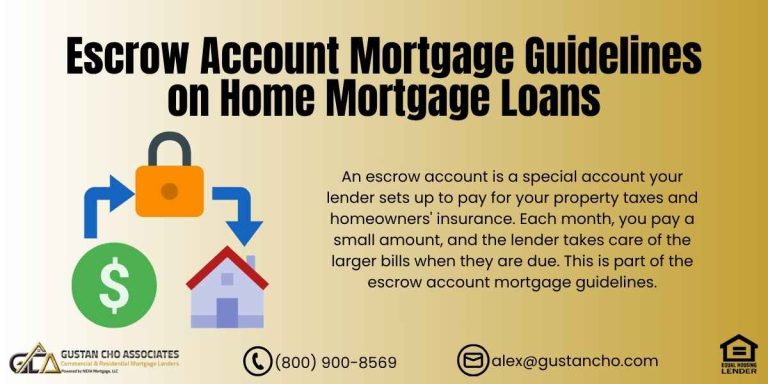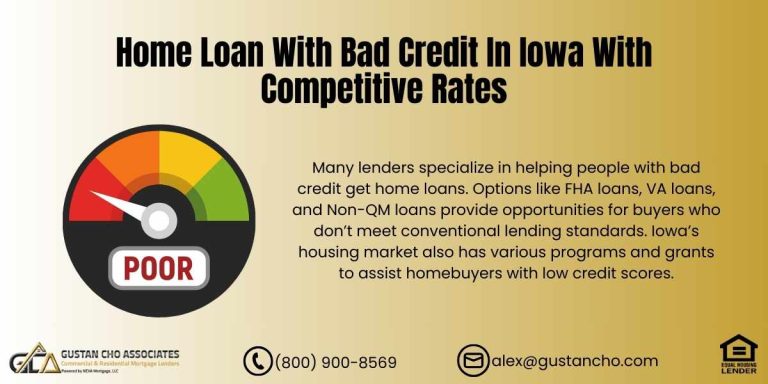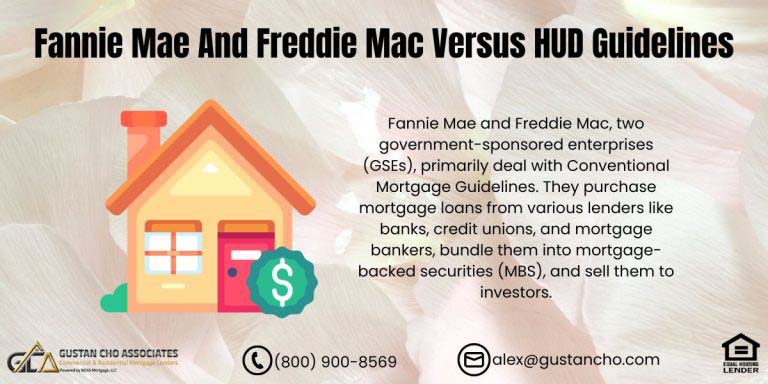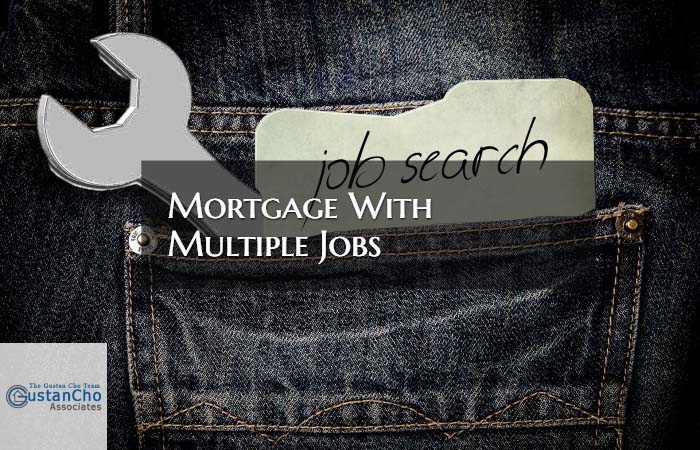This BLOG covers FHA insured mortgage loans vs other loan programs. FHA insured mortgage loans are government residential home loans that are originated and funded by private mortgage lenders. However, FHA insured mortgage loans are insured by the Federal Housing Administration against borrower default and foreclosure. HUD, the parent of FHA, insures private lenders who are HUD-Approved in the event the FHA loan originated and funded default as long as the lender follows HUD guidelines. In this article, we will cover and discuss FHA insured mortgage loans versus other loan programs.
The Role of FHA And Benefits of FHA Insured Mortgage Loans
FHA is not a lender. FHA is a government agency that was created under the U.S. Department of Housing and Urban Development (HUD) with its mission and role being to promote homeownership by insuring private lenders against losses in the event if FHA borrowers were to default on their FHA loans.
- The Federal Housing Administration, FHA, was created in 1934
- The creation of FHA and role was to induce and promote affordable housing to every hard-working American family
- The mission of FHA is to make homeownership possible to every American
The Federal Housing Administration became part of the United States Department of Housing and Urban Development back in 1965.
Understand Your Out-of-Pocket Costs in the Mortgage Process
Learn about the fees and expenses you’ll need to budget for when buying a home.
FHA-Insured Mortgage Loans vs. Other Loan Programs: A Comprehensive Guide
Buying a home is one of the biggest financial choices you will ever make. Choosing the best mortgage loan program is a key step that affects your budget and long-term goals. FHA-insured mortgage loans rank among the most popular options, mainly because they are easy to qualify for, making them a great fit for first-time buyers and borrowers with lower credit scores. Other choices, like conventional, VA, and USDA loans, might better suit some borrowers. This guide compares FHA loans with these alternatives, breaking down their main features, advantages, and key differences so you can pick the loan that fits your needs best.
What are FHA-Insured Mortgage Loans?
FHA loans are home loans backed by the Federal Housing Administration (FHA), a part of the U.S. Department of Housing and Urban Development (HUD). Their main goal is to make homeownership more achievable by lowering the barriers to entry: they require a smaller down payment, have more flexible credit score requirements, and often come with competitive interest rates. This makes FHA loans popular with first-time buyers, people on tighter budgets, and borrowers who’ve faced credit challenges in the past.
Benefits of FHA Loans for Borrower with Less than Perfect Credit and Low Scores
FHA loans are friendly to new buyers since they let you buy a home even if you don’t have perfect credit. If your score is 580 or higher, you must put down only 3.5 percent. If your score is between 500 and 579, the down payment jumps to 10 percent. The good news is that even if your score is low, you might still get a lower interest rate than you would with many other loan types. Alex Carlucci explains the HUD FHA mortgage insurance premium on FHA loans:
Remember, though, that FHA loans come with two types of mortgage insurance: a one-time upfront fee and a yearly premium. This insurance protects lenders if you can’t keep up with the loan.
Also, the amount you can borrow is limited. Most counties let you borrow up to $524,225 for a single-family home in 2025, but that number is higher in expensive areas. Finally, the home you buy must pass FHA’s safety and livability inspections to ensure it’s a good place to live. When deciding if an FHA loan is your best choice, it’s smart to weigh it against three other popular loan options: conventional loans, VA loans, and USDA loans. Each has its rules, perks, and drawbacks, so comparing them can help you find the perfect fit for your situation.
Conventional Loans
Conventional loans come from private lenders like banks and credit unions and aren’t backed by the federal government. They fall into two categories: conforming loans, which meet the standards set by Fannie Mae and Freddie Mac, and non-conforming loans, like jumbo loans, which are for higher-valued properties.
Most conventional loans ask for a down payment of 3 to 20 percent of the home’s price. If you put down 20 percent, you avoid private mortgage insurance (PMI). PMI kicks in if your down payment is less than 20 percent, but you can drop it once you own 20 percent of the equity.
A credit score 620 is usually the minimum you need, but a higher score can help you get a lower interest rate. In 2025, the limit for conforming loans is $766,550 in most places, but it’s higher in areas where home prices are above the norm. These loans also have fewer rules about the type of property you can buy, which gives you more options than FHA loans. Conventional loans work best for people with solid credit scores who can make bigger down payments. They can skip the costly lifelong mortgage insurance that FHA loans require. FHA loans are easier for borrowers with lower credit scores or smaller savings. However, their up-front and ongoing mortgage insurance premiums can raise the total cost over time.
VA Loans
The Department of Veterans Affairs backs VA loans. They are offered to eligible veterans, active service members, and some surviving spouses. Their generous terms make them very appealing. The biggest benefit of VA loans is that you can buy a home with no down payment.
You also skip mortgage insurance, which saves money every month. Instead, you pay a one-time VA funding fee, which varies between 1.25 and 3.3 percent depending on the loan size and whether it’s your first VA loan.
Credit scoring is lenient; there is no minimum, but most lenders look for at least 620. First-timers have no strict loan limits, but the funding fee goes up for loans that exceed the standard conforming limits. Like FHA loans, any home you buy with a VA loan must meet safety and livability standards. VA loans stand out for eligible military members because they don’t need a down payment and don’t require mortgage insurance. FHA loans are a strong backup choice for non-military borrowers with similar financial situations, providing flexible credit standards.
USDA Loans
USDA loans, supported by the U.S. Department of Agriculture, aim to make homeownership possible in rural and suburban areas. These loans are for low—to moderate-income borrowers living in qualified zones.
With a USDA loan, you can buy a home with no down payment, which is a big help for many buyers. There is an upfront and an annual guarantee fee, similar to the FHA’s mortgage insurance premium.
You usually need a credit score of at least 640, but exceptions can happen. Your income must stay below 115 percent of the region’s median income, and the house has to be in a USDA-approved rural or suburban area. There aren’t set loan caps, but the loan amount must stay in line with what you can afford to pay back. USDA loans make sense for qualifying buyers in rural areas. They have no down payment and good interest rates. However, FHA loans fit better for those in urban or suburban neighborhoods or buyers whose income or location doesn’t match USDA rules.
Advantages and Disadvantages of FHA Insured Mortgage Loans
FHA loans have several advantages, making them a popular choice for many buyers. A down payment of just 3.5 percent costs much less upfront than the typical 20 percent required for conventional loans. Borrowers with credit scores beginning at 500 can still get approved, so folks with a few credit bumps still have an option. Plus, FHA loans are assumable, meaning a future buyer can take over the mortgage, making the home more appealing when it’s time to sell. Finally, most lenders offer them, so it’s easy to find.
Still, FHA loans have some trade-offs. Borrowers must pay an upfront mortgage insurance premium (UFMIP) and an ongoing monthly mortgage insurance premium (MIP) that adds to the total cost. Unlike the private mortgage insurance (PMI) on conventional loans, the annual MIP often can’t be dropped. FHA loan limits are also lower than conventional options, which can be problematic in pricey neighborhoods. Any home with an FHA loan must pass a special appraisal process that can leave some houses off the table. Finally, if someone can qualify for a conventional loan, they may pay less over the long haul.
Choosing the Right Loan Program
Picking the right mortgage loan is about matching your finances, home-buying wishes, and qualifications. If you’re a first-time buyer with a credit score below 680 or little saved for a down payment, the FHA loan is a great option. A conventional loan works best if you have strong credit, can put down a bigger payment, or want to skip lifelong mortgage insurance. Veterans and active-duty service members can benefit from a VA loan without a down payment or mortgage insurance. Meanwhile, USDA loans serve moderate-income rural buyers who meet location and income rules.
Know What You’ll Pay During the Mortgage Process
From closing costs to down payments, we’ll help you understand your out-of-pocket expenses.
Tips for Selecting a Mortgage
To find the mortgage that suits you, start by looking at your finances—credit score, income, debt-to-income ratio, and how much cash you have for a down payment. Get loan quotes from several lenders, because rates, fees, and terms can differ greatly. Think about the full cost over time— mortgage insurance, interest rates, and how long the loan lasts. Talk to a mortgage broker or lender for advice that fits your situation. And always double-check that you meet the special rules for loans like VA or USDA before you apply.
FHA-insured mortgage loans are a great choice for many buyers. They let you buy a home with a small down payment and few credit hurdles. Still, a conventional, VA, or USDA loan could offer better terms or lower monthly payments, depending on your financial picture and homeownership goals.
The key is to weigh your situation and compare all your loan choices. Doing so will help you pick the mortgage that fits your journey to owning your home. Talk to a reliable lender or mortgage advisor to dive deeper into your choices and take the next confident step toward that dream home. This keeps the same information and keywords as your original content, while simplifying the wording. Let me know if you need more adjustments or a different angle!
FHA Insured Mortgage Loans are the Most Popular Loan Program in The United States
HUD currently insures more than one trillion in home loans in the United States and makes homeownership possible for those with less than perfect credit and those who are first time home buyers. The FHA loan programs has insured more than 36 million homes since its inception in 1934. FHA is the largest home mortgage insurance company in this world and is still going strong.
Why FHA Insured Mortgage Loans
There are many advantages for a home buyer or homeowner to get an FHA insured loans versus a Fannie Mae conventional mortgage loans.
- One of the greatest advantages of getting FHA loans is that it allows smaller down payment on home purchases
- Conventional loans require a bare minimum of 5% down payment
- Conventional Loans allow for 3% down payment for first time home buyers with good credit
- FHA minimum down payment requirement is 3.5% down payment
FHA Loans Benefit High Debt To Income Ratio Borrowers
Another major advantage of getting FHA Loans is that their lending guidelines are much more generous than Fannie Mae’s conventional loans.
- Most conventional loans debt to income caps are set at 50% DTI
- For FHA Loans, caps on debt to income ratios can be as high as 46.9% front end and back end 56.9% to get an approve/eligible
Many borrowers with excellent credit scores sometimes need to go with FHA Loans if they have a higher debt to income ratio that exceeds the conventional debt to income ratio caps.
Lower Mortgage Rates Due To Government Guarantee
Another important fact that borrowers need to keep in mind is that FHA rates are normally 0.50% lower than conventional mortgage rates:
- Lenders can offer lower mortgage rates on FHA home loans
- This is because of the government guarantee against the borrower defaulting on their loans
- FHA does implement risk-based pricing for borrowers with lower credit scores like conventional mortgage loan programs do
FHA loans are not as credit score conscious like Conventional Loans.
More Advantages With FHA Insured Mortgage Loans
For borrowers with less than perfect credit, no credit, bankruptcy, prior foreclosures, prior short sales, and prior late payment histories, FHA loans may be the only option to go. FHA guidelines are much more lenient than other mortgage loan programs such as conventional, portfolio, VA loans, USDA Loans, and Homepath loans (Which are conventional loans).
A borrower can qualify for FHA loans with credit scores as low as 500 FICO. However, anyone with under 580 credit scores needs 10% down payment to qualify for FHA loans. Borrowers can qualify for FHA Loans with outstanding collections, judgments, tax liens, recent late payments, recent overdrafts, and high debt to income ratios. FHA loans are ideal for renters who want to become first time home buyers.
Non-Occupied Co-Borrowers
There are many instances where mortgage underwriters will not take into account income that is not sourced or documented such as cash income. There are many instances where self-employed or 1099 workers have sufficient income to qualify for a mortgage loan. The mortgage underwriter will not take that income for qualifying purposes because it is not sourced or it is not documented. John Strange, a senior mortgage loan originator at Gustan Cho Associates says the following about FHA insured mortgage loans:
Cash is worthless in the mortgage business and cannot be used whatsoever. No exceptions. HUD allows for those who do not qualify for a mortgage loan due to lack of income to get a non-occupied co-borrower. The actual borrower can have zero income but will qualify as long as he or she has a non-occupied co-borrower.
FHA will allow debt to income ratios as high as 56.9%. Home buyers who are interested in getting qualified for FHA Loans with a lender with no lender overlays on government and conventional loans, please contact us at Gustan Cho Associates at 800-900-8569 or text us for faster response. Borrowers can also email us at gcho@gustancho.com. We are available 7 days a week, evenings, weekends, and holidays.
How Much Will You Pay for Your Mortgage? Understand the Costs
We’ll help you navigate the financial side of homeownership and avoid surprises.









